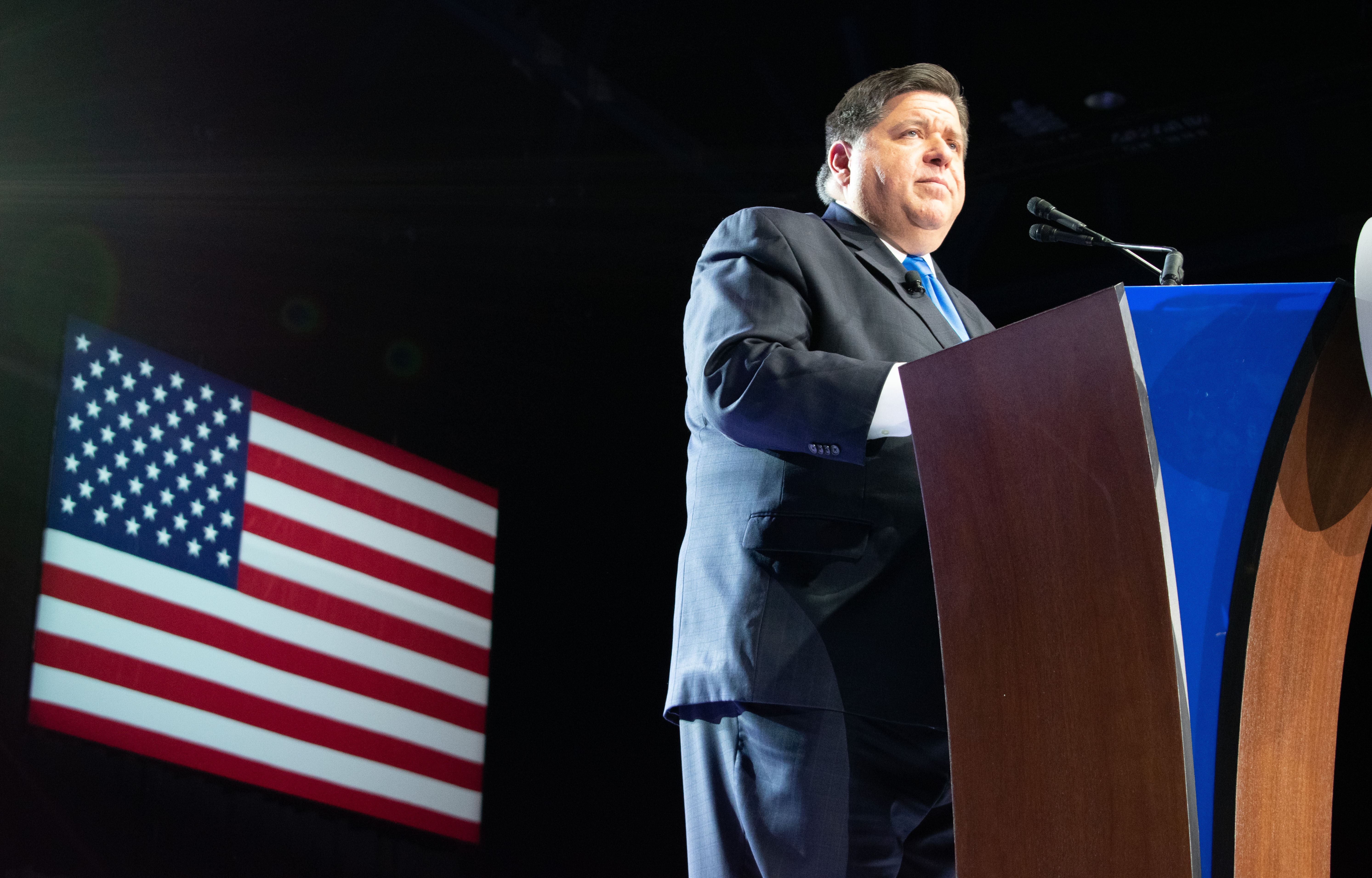Survey: Governors’ Approval Ratings Hold Steady Before November Elections
But partisans rate Democratic governors more positively and that could be ‘consequential’ for close races
October 12, 2022
Get all our news
The differences in gubernatorial approval, with Democrats expressing more enthusiasm for their party’s governors, than Republicans do for their party’s, could be notably consequential if it influences turnout.”
James Druckman
IPR political scientist
Twenty-eight governors, 15 Republicans and 13 Democrats, will be up for re-election in November, and a new survey of more than 26,000 American voters from August 11 to September 13, 2022, reveals how they might fare in their bids for another term.
When it comes to how they have been handling affairs and the pandemic in their states, the September 2022 average for all 50 governors is 40% for their overall handling of their state’s affairs, with an average of 39% for their handling of the pandemic. This compares with an average of 42% for their overall performance and 47% for the pandemic in November 2021. Though the average approval ratings are lower now, the slide in gubernatorial approval seen over the last 10 months seems to have plateaued.
The 'Partisan Approval Gap'
Interestingly, the researchers find a large “partisan approval gap” between Republican and Democratic incumbents, with Republican voters rating Republican governors lower than Democratic voters' ratings of Democratic governors. Independents also contribute to that gap as they tend to assess Democratic governors more highly than Republican ones.
“The differences in gubernatorial approval, with Democrats expressing more enthusiasm for their party’s governors than Republicans do for their party’s, could be notably consequential if it influences turnout, said IPR political scientist James Druckman. “And turnout surely will play a crucial role in some of these close races.”
Druckman co-authored the report with scholars from Harvard, Rutgers, and Northeastern universities as part of the COVID States Project.
The researchers’ analysis shows that of the 15 Republican governors running, only two—New Hampshire’s Chris Sununu and Vermont’s Phil Scott—have approval rates for their handling of COVID above 40%, and another two—Florida’s Ron DeSantis and Wyoming’s Mark Gordon—hover just above 40% for general approval. For the 13 Democratic incumbents, 10 governors stood above 40% for their pandemic oversight and seven received ratings of 40% or more for their overall performance.
Six Republican governors—Mike Dunleavy of Alaska, Brian Kemp of Georgia, Brad Little of Idaho, Kevin Stitt of Oklahoma, Bill Lee of Tennessee, and Greg Abbott of Texas—have fallen below 35% for management of the pandemic in their states. Stitt and Abbott also dove under 35% for voters’ approval of how they manage their states. But only one Democratic governor, Nevada’s Steve Sisolak, dropped under the 35% bar of approval in both areas.
“It is interesting these governors are suffering, but given that most are in states largely populated by voters from their party, they are unlikely to be vulnerable,” Druckman said.
In Illinois, Democratic Gov. JB Pritzker received his highest marks (63%) in April 2021 for his handling of the pandemic, but that had fallen to 41% by August 2022. Approval of his overall performance stood at 37% in August 2022, a drop of 11 percentage points from 48% in November 2021.
DeSantis, a likely contender for the 2024 Republican presidential nomination, held steady in his overall performance approval at 41% in November 2021 and August 2022. But Florida voters thought less of his pandemic performance, which tumbled 13 percentage points from a high of 49% in May 2021 to 36% by August 2022. (The survey occurred before Hurricane Ian hit Florida.)
Presidential Approval
The researchers also asked what voters thought about President Joe Biden and former President Donald Trump, the two front-runners for the top of their respective party's tickets in 2024. Biden and Trump’s approval ratings are nearly the same, standing at 35% and 34% respectively. But Biden’s numbers have jumped since June’s poll, where he added 4 percentage points to his general approval, rising to 35%, and 3 percentage points to his pandemic performance, pulling the latter up to 37%.
Digging down into the presidential approval ratings, however, reveals that voters are markedly more polarized in their opinions of Trump: 40% of voters strongly disapprove of him versus only 29% for Biden. On the flip side, 17% of voters strongly approve of Trump, compared to just 12% for Biden.
“This speaks to the continued polarizing presence of Trump,” Druckman said.
But 21% of voters remain neutral about Biden’s performance—neither approving, nor disapproving—compared to only 14% for Trump, which suggests that Biden might have a greater opening to persuade more voters.
Read the report. Ratings for all governors, including trends since April 2020, are available here.
James Druckman is the Payson S. Wild Professor of Political Science and IPR associate director and fellow.
Photo credit: Vishesh Anand, Illinois Public Media
Published: October 12, 2022.



